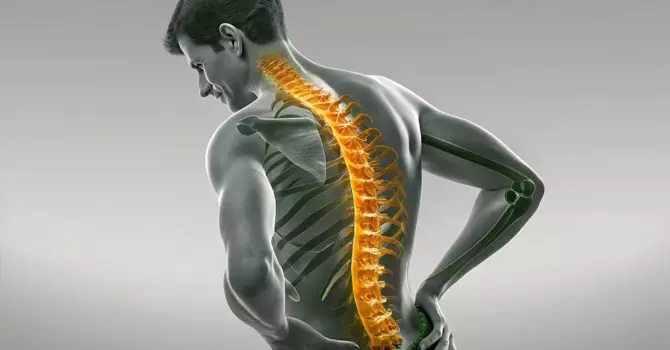
The Gut-Brain Axis: How Digestion Affects Mood
You may have heard the term "gut feeling" or noticed that stress can lead to digestive issues. This is not just a figure of speech or a coincidence; modern science has validated a strong two-way connection between the gut and the brain, commonly known as the gut-brain axis.
This dynamic relationship helps explain why gut health influences not just digestion but also mental health, stress resilience, and mood regulation.
At Arthrology Chiropractic, we view health through a systems-based lens. Understanding the gut-brain axis helps us connect symptoms like bloating, brain fog, and anxiety that might otherwise seem unrelated.
In this post, we'll explore what the gut-brain axis is, how it works, and how supporting digestive health can positively impact your mental well-being.
What is the Gut-Brain Axis?
The gut-brain axis is a bidirectional communication system between your gastrointestinal (GI) tract and your central nervous system (CNS). It involves multiple overlapping systems, including:
- Nervous system (especially the vagus nerve)
- Hormonal pathways
- Immune system
- Gut microbiota (the trillions of bacteria living in your intestines)
This communication system helps regulate everything from:
- Mood and emotional balance
- Focus and cognition
- Stress response
- Pain perception
- Immune function
- Appetite and digestion
The gut is often referred to as the "second brain" due to its vast enteric nervous system, which contains over 100 million neurons, more than the spinal cord.
How Your Gut Impacts Your Mood
1. Neurotransmitter Production
Your gut microbiota helps produce and regulate neurotransmitters, including:
- Serotonin (often referred to as the "feel good" hormone): about 90% of serotonin is made in the gut.
- GABA: calming neurotransmitter that helps regulate anxiety
- Dopamine: involved in reward, motivation, and mood
When the gut microbiome is out of balance (a state referred to as dysbiosis), neurotransmitter production may be disrupted, potentially contributing to anxiety, depression, or low stress tolerance.
2. Vagus Nerve Communication
The vagus nerve is the main information highway between the brain and the gut. It transmits signals in both directions and plays a key role in the parasympathetic nervous system, which governs rest, digest, and recovery.
Poor vagal tone (or underactivation) is linked to:
- Digestive dysfunction (e.g., IBS, bloating, reflux)
- Poor stress recovery
- increased anxiety and mood swings
Practices like dietary changes, deep breathing, meditation, and cold exposure can enhance vagus nerve function, benefiting both the gut and the brain.
3. Inflammation and the Blood-Brain Barrier
Chronic inflammation in the gut (from infections, food sensitivities, or poor diet) can lead to increased permeability of the gut wall (leaky gut), allowing lipopolysaccharides (LPS) and other harmful substances to enter the bloodstream, potentially causing systemic inflammation.
This systemic inflammation can cross into the brain through a compromised blood-brain barrier, contributing to:
- Brain fog
- Fatigue
- Mood disorders
- Neuroinflammation
Maintaining a healthy gut microbiota and lining helps reduce the inflammatory burden and protect cognitive function.
The Role of the Microbiome in Mental Health
Your gut is home to over 100 trillion microbes that play a vital role in digestion, immunity, and emotional regulation.
Research shows that individuals with anxiety or depression often have less microbial diversity and a higher ratio of pro-inflammatory species in their gut.
Certain strains of bacteria, such as Lactobacillus and Bifidobacterium, have been shown to:
- Lower cortisol
- Improve mood and sleep quality
- Reduce symptoms of depression and anxiety
These bacteria are sometimes referred to as psychobiotics, probiotics with mental health benefits.
Signs Your Gut May Be Affecting Your Mood
- Frequent bloating, constipation, or diarrhea
- Chronic fatigue or low energy
- Brain fog or difficulty concentrating
- Anxiety or irritability, especially after meals
- Cravings for sugar or processed foods
- Poor sleep quality
- Food sensitivities
- Frequent illness
If you have both digestive and mental health symptoms, supporting your gut health may restore balance.
Ways to Support a Healthy Gut-Brain Axis
1. Eat a Fiber-Rich, Whole Foods Diet
Fiber from vegetables, fruits, legumes, and whole grains nourishes beneficial gut bacteria, enabling them to thrive. A diverse diet supports a diverse microbiome, which is linked to better mood and resilience.
2. Incorporate Fermented Foods Into Your Diet
Fermented foods contain beneficial bacteria (probiotics) that promote microbial diversity and intestinal health.
Common fermented foods:
- Yogurt (unsweetened)
- Kefir
- Sauerkraut
- Kimchi
- Miso
- Tempeh
- Kombucha
- Pickles (fermented)
3. Manage Stress
Stress disrupts gut motility, impairs digestion, and alters the gut microbiome. Try practices like:
- Mediatation
- Breathwork
- Regular exercise
- Spending time in nature
4. Supplement with Probiotics and Prebiotics
Supplementing with probiotics (especially psychobiotics) and prebiotics (like inulin, FOS, or resistant starch) can improve mood, reduce inflammation, and support neurotransmitter production.
Not all probiotics are the same, so it's worth working with a healthcare professional to find the correct strain and dose.
5. Get Quality Sleep
Sleep deprivation disrupts the gut's circadian rhythm, which in turn reduces microbial diversity and increases inflammation. Aim for 7-9 hours of quality sleep per night to support both brain and gut health.
6. Avoid Gut Irritants
Chronic use of NSAIDs, alcohol, highly processed foods, artificial sweeteners, and frequent antibiotic use can negatively impact microbial diversity and gut lining.
How We Approach the Gut-Brain Axis at Arthrology Chiropractic
While we specialize in musculoskeletal care, we recognize that gut health is inextricably linked to overall health. For patients dealing with pain, fatigue, or mood-related concerns, we may recommend:
- Functional lab testing (e.g., stool analysis, food sensitivities)
- Nutritional support for gut healing
- Supplement protocols to improve microbial diversity and gut health
- Chiropractic care and acupuncture to support parasymathetic tone
- Lifestyle recommendations (exercise, sleep hygiene, stress management)
We take a personalized, root-cause approach to help restore balance, resilience, and clarity from the inside out.
Final Thoughts
The gut and brain are in constant communication, and when one is struggling, the other often suffers as well. The concept of the gut-brain axis provides an intriguing framework for understanding the mental, emotional, and physical symptoms that many people experience.
If you're dealing with chronic digestive issues, brain fog, anxiety, or fatigue, it's worth looking below the surface; your gut might be trying to tell you something.
At Arthrology Chiropractic, we're here to support your health from every angle.

Edward Boudreau
Contact Me



.png)
